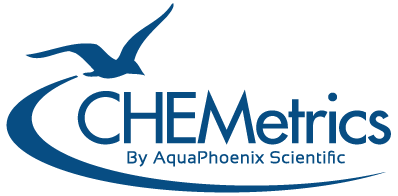Sulfate Test Kits

What is Sulfate?
Sulfate (or ‘sulphate’ in some areas) is an anion with the chemical formula SO42-. Sulfate occurs naturally and can be found in widely varying concentrations in surface and groundwater due to the chemical derivatives of sulfate usually being water-soluble. Industrial sulfates are made from plant or petroleum sources. These sulfates are used in many industries, but most people are familiar with them in cleaning products or personal care products. They are considered surfactants when used to deliver a lathering effect in cleaning products.
Why Test for Sulfate in Water?
While sulfate is common at low concentrations in natural waters, at high concentrations it can cause a foul odor or taste. For this reason, drinking water testing for sulfate has become standardized. The USEPA’s Secondary Drinking Water Standard is 250 mg/L for sulfate in potable water. Sulfate levels are measured in the beverage industry for the same reason. Environmental testing of sulfate can help identify run-off pollution or industrial contamination of natural waters. Geotechnical engineers perform sulfate analysis in water when studying factors influencing soil corrosion and sulfate attack on concrete structures. Sulfate levels must also be monitored in cooling water and ion exchange systems in order to prevent calcium sulfate scale formation.
About Our Sulfate in Water Test Kits
CHEMetrics offers an instrumental Vacu-vials® sulfate test kit that utilizes self-filling ampoules containing pre-measured reagents for a single test. Therefore, it is strongly recommended that analysts generate an instrument specific calibration. Alternatively, CHEMetrics photometers are available with a pre-programmed sulfate calibration to provide direct read test results.
Click on a catalog number in the tables below for more information or to purchase a sulfate test kit.
Instrumental Kits
| Range | Method | Kit Catalog No. |
|---|---|---|
| 0-100.0 ppm | Turbidimetric | K-9203 |
Method
References: APHA Standard Methods, 15th ed., Method 426 C (1980). USEPA Methods for Chemical Analysis of Water and Wastes, Method 375.4 (1983). ASTM D 516-07, Sulfate Ion in Water. The Sulfate Vacu-vials® test kit employs the turbidimetric method. Sulfate ion reacts with barium chloride in an acidic solution to form a suspension of barium sulfate crystals of uniform size. The resulting turbidity is proportional to the sulfate concentration of the sample. Turbidimetric method results are expressed as ppm (mg/L) SO4.

